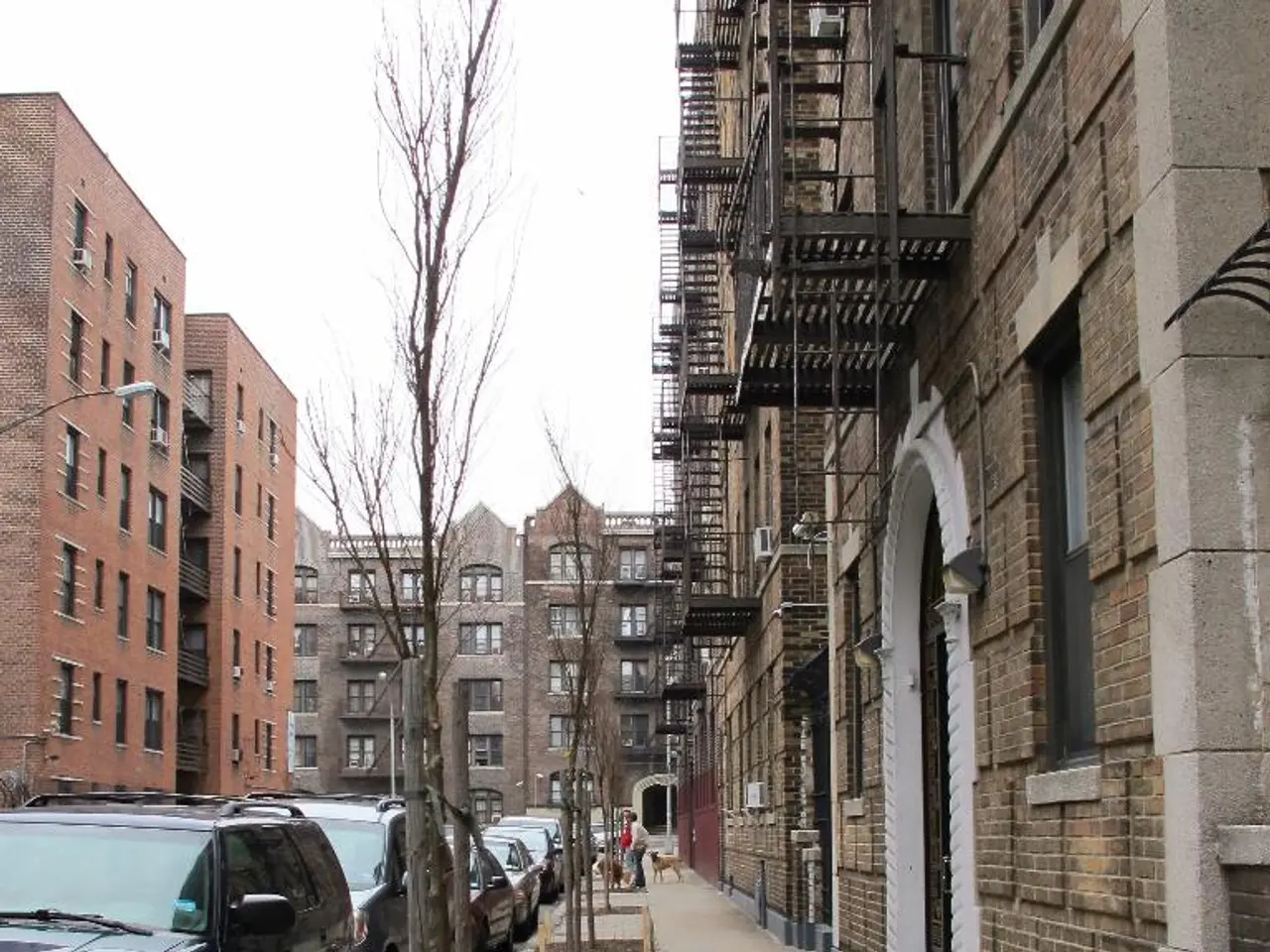Young Men Sentenced for Vicious Attack in Wuppertal Backyard: A Look at Juvenile Justice and Punishment
Two young individuals face lengthy jail terms after a fatal stabbing that occurred in a Wuppertal backyard. - Two individuals face lengthy prison terms following a fatal stabbing that occurred in a backyard in Wuppertal.
Let's dive into the brawl that took place in a Wuppertal backyard, resulting in a tragic end for a 24-year-old man. Two young defendants, along with another perpetrator, took part in this senseless violence, causing severe physical harm and ultimately, death.
The primary defendant inflicted several stab wounds, some penetrating the heart, due to which the victim succumbed to his injuries. The motive, according to the verdict, was a bitter feud that took place in 2022, where the primary defendant was injured. The defendants sought revenge for this confrontation.
The primary defendant had meticulously planned this attack for months, even arranging an escape vehicle, further convincing the court that he had acted with malice, resulting in a conviction for murder.
The second defendant, however, claimed to be unaware of the killing plans. He believed that the victim would only be severely injured, with the possibility of a knife being used. This lack of knowledge led to a conviction for assault resulting in death.
Since both defendants were under 21 at the time of the crime, they were classified as juvenile offenders, and juvenile criminal law was applied. The main defendant was sentenced to a juvenile prison term of nine years and three months, while the second defendant received a sentence of four years and three months.
It's essential to note that these sentences may still be subject to further review. An appeal can be filed, with the decision ultimately lies with the Federal Court of Justice in Karlsruhe.
Now, let's talk about the nuances of juvenile justice and punishments in Germany. For offenders between the ages of 14 to 17 (and sometimes young adults up to 20), juvenile criminal law (Jugendstrafrecht) is applicable. This system focuses on educational and rehabilitative measures over punishment for serious crimes such as murder or manslaughter.
In Germany, the maximum custodial sentence for juveniles can reach up to 10 years in a juvenile detention center, even for particularly grave offenses like murder. If the offender is 18 or older but under the jurisdiction of juvenile law, courts have the discretion to impose more severe sentences, reaching up to life imprisonment under adult criminal law.
In this Wuppertal case, the prison sentences for the two defendants fall within the juvenile sentencing framework, capping sentencing at a maximum of 10 years for murder-related cases.
In conclusion, a juvenile defendant in Wuppertal convicted of murder and assault resulting in death in a backyard can expect a prison sentence of up to 10 years in juvenile detention, with a focus on rehabilitation rather than a long-term incarceration as seen in adult criminal law. Sentence lengths may vary depending on the specifics of the case and judicial discretion.
- Despite the severity of their crimes, including murder and assault resulting in death, the two young defendants in Wuppertal were sentenced to prison terms of less than 10 years, demonstrating the rehabilitative focus of juvenile justice in Germany.
- The two boys accused of murder and assault resulting in death in Wuppertal were classed as juvenile offenders, with their cases falling under the jurisdiction of war-and-conflicts, politics, general news, and crime-and-justice categories, but their sentences were still subject to potential review and could potentially impact the broader conversation about juvenile justice and punishment.






